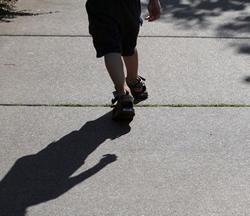 The ACT has become the first jurisdiction in Australia to introduce legislation to raise the minimum age of criminal responsibility from 10 to 14 years.
The ACT has become the first jurisdiction in Australia to introduce legislation to raise the minimum age of criminal responsibility from 10 to 14 years.
Marking the milestone, Attorney-General Shane Rattenbury said the Justice (Age of Criminal Responsibility) Legislation Amendment Bill 2023 would raise the minimum age of criminal responsibility to 12 years on commencement, and to 14 years by 1 July 2025.
“This is a significant reform to justice in the ACT that recognises the evidence around young people who engage in anti-social behaviours,” Mr Rattenbury said.
“In the ACT we will seek to address the factors that cause young people to offend – like trauma, abuse, neglect or unmet health needs – and to help young people rather than criminalise them,” he said.
“Addressing the underlying needs of this cohort will reduce recidivism and support the wellbeing of young people in the community.”
Mr Rattenbury said the two-stage approach to raising the age would see the ACT implement the reforms in relation to children aged 10-11 initially, allowing the alternative service system to be rolled out for all young people, before applying the reforms for 12- and 13-year-olds.
He said the Bill would include a schedule of four exceptionally serious offences that would maintain a minimum age of criminal responsibility of 12 years when the age is further raised to 14 years, with the aim of ensuring harmful behaviour of this nature was appropriately addressed.
“The Bill recognises and maintains the rights of victims of harmful behaviour by protecting victims’ interests and providing for victim participation and support in relation to any harm caused by children and young people aged 10 to 13 years,” the Attorney-General said.
“The Bill will also support all children and young people under the age of 18 involved in the criminal justice system by introducing a new community-based intensive therapeutic sentence called a Therapeutic Correction Order.
“The Order will provide wraparound services for a young offender convicted of a criminal offence to ensure they receive assistance to address their needs and reduce the likelihood of reoffending,” Mr Rattenbury said.











